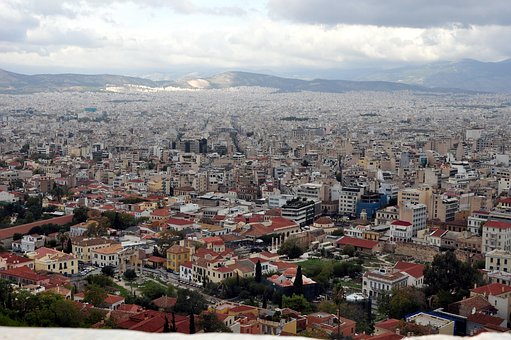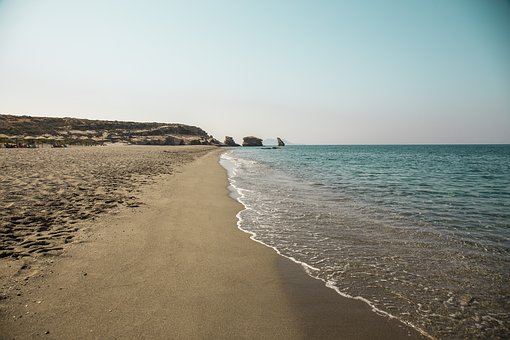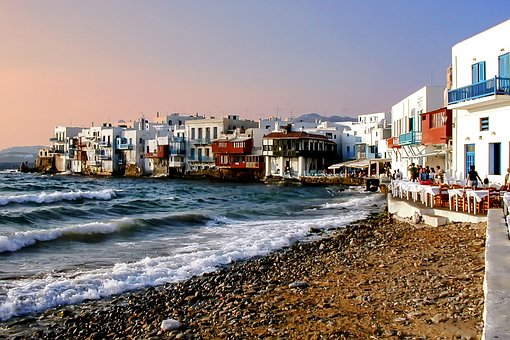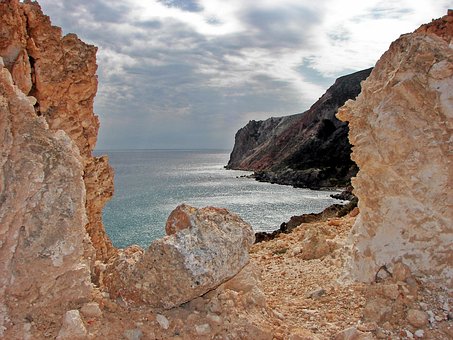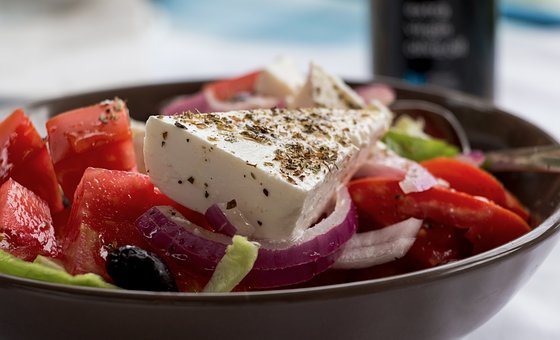Backpacking in Greece
When travelling to Greece, you will not only discover the mainland with its special buildings of Greek mythology, but also the many dreamlike islands located in the Mediterranean Sea. You have different possibilities to start your unique backpacker trip on the mainland. From Thessaloniki the routes lead along the coast or through mountain regions with an indescribable vegetation, which is strongly influenced by the special climate.
The mountainous mainland has the most beautiful hiking areas in all of Europe. They are hardly developed and sometimes more difficult to walk on. Besides Chalkidiki, Párga and Dimitsána, the most lonely hiking region is the Pindos Mountains. The river valleys offer good routes for exploring the idyllic landscape.
As a backpacker you will automatically come into contact with the history and myths of Greece. Because everywhere you can find ancient monuments and impressive temples. The result is a dreamlike combination of culture, sun, beach and sea. Cities and buildings belong to the large part to the UNESCO world cultural heritage. Greek cuisine has a variety of delights to offer, with delicious wines, spices, olive oil and garlic a real treat for the palate.
Travelling in Greece is optimally arranged by a well developed road network and other travel possibilities. 38 major airports alone ensure that you get from A to B as quickly as possible. The cultural and economic centre of Greece is Athens, where around 670,000 people live.
The country borders Turkey in the west. Around the southern tip of Greece rest over 3000 small islands. Among the most famous and largest islands are Crete, Corfu, Rhodes and Samos, which lie in the Libyan, Ionian and Aegean Seas.
Greece offers a distinct Mediterranean climate with hot, dry summers and rainy, mild winters. However, there are regional differences due to the geography of the country. On the island Peleponnes and on Crete it is already hot in June and precipitation very rare. On the east and north coasts the summer is different. Fresh gusts make the high temperatures more bearable. In the north and west the climate is more humid.
The high summer is characterized by long dry periods. However, there are heavy thunderstorms in the interior of the country. For the backpacking trip through Greece a credit card or the EC card is recommended to withdraw cash. The bank structure is very low compared to other European travel countries. However, there are several ATMs in the big cities where you can easily get cash.
The Greek language is not so easy to learn. But the Greeks will be happy if you master a few words during your backpacker trip and thus show your interest. This way you can open some doors for yourself. But even without Greek you won’t have any communication problems in certain areas like Rhodes, because many people speak English and speak German.
Culture in Greece
Greece is the birthplace of European culture and has been one of the most diverse and influential in the world. Today’s Greece is a perfect blend of antiquity and modernity, reflected in daily life. Great names like Socrates, Plato and Aristotle are known beyond the borders, as well as Gyros, Zaziki and Ouzo.
As a backpacker you will experience an indescribable diversity in the land of gods and heroes. Due to the strict religious influence there are many holidays, which are celebrated with large celebrations and processions. Easter has a higher value than Christmas and is therefore celebrated especially big. History and culture can be experienced very closely in many places. Especially on the mainland, there are interesting and historical monuments everywhere to admire in picturesque places and in the cities.
During a tour through Athens there is not only the big city flair. Because through small, winding lanes it goes up to the Acropolis. Beach and sea with small cosy restaurants give you a good insight into the delicious, typical dishes of the country.
More Backpacking Information about Greece
Greece is a country with many possibilities for an extended backpacker trip. The mainland offers an indescribable landscape. There are high mountains like the Pindos or the Olympus, indescribable mountain massifs broken by valleys and amazing mountain landscapes where countless rivers have their sources. On the jagged coasts are dreamlike bays, which give this area a very special beauty. Another side of Greece you can get to know while island hopping on the Cyclades.
In Greece, there are areas that are little frequented by tourists, where you get very cheap accommodation and food. Basically you should plan between 50 and 80 Euro per day, especially if you use public transport. In the big cities the prices are clearly higher than in Germany, especially when it comes to tourist centres, because here the hospitality is overused.
Many Greeks in rural areas trade in self-produced food, which you can buy or exchange. There is also no Greek who says no when you politely ask if you can pick a few apples or grapes in passing. A payment would rather be seen as an insult. Tip: Never stay longer than 3 days in one place in order not to overtax the hospitality.
Accommodation costs between 20 and 40 euros per person. Ferries cost between 10 and 50 euros per person, depending on the route. If you want to spend a day on the beach, you pay between 5 and 10 euros a day for a sun lounger with parasol. Basically the prices in the restaurants and snack bars are somewhat more expensive than in Germany.
During a shopping tour you get inexpensive, solid leather goods like bags, shoes, belts and backpacks as well as cotton clothing and jewellery, starting from simple silver rings up to extraordinary pieces of jewellery made of gold and silver, which originate from gold and silversmiths. The forging of jewellery has a long tradition in Greece.
Backpacker Budget in Greece
Travelling in Greece is quite different depending on the region, as especially in the tourist centres many things are more expensive than travelling through remote areas. Since you spend a lot less on food and accommodation in one day, the average budget is between 50 and 70 Euros per day.
Because the money you save one day can be used on other days for a ferry trip to one of the islands, a more expensive accommodation or an extensive meal. Simple accommodation and public transport are usually cheaper than in Germany.
There are also big differences with regard to the entrance fees for sightseeing. This is due to the importance of the site. Admission prices are between 2 and 12 euros. Children, pupils and students with an international student identity card have free admission, from an age of 65 years there is a reduction. For a simple meal or drink in a bar it will be a bit more expensive than in Germany.
Taxi driving in Greece
In Greece, the transport tariff of Greek taxis is subject to state price control. As a basic fee, you pay around 1.30 euros in rural areas and around 3.50 euros in cities such as Athens and Thessaloniki. In other areas, the minimum charge is around 3.70 euros. In addition, 0.80 euros are due per kilometre driven. In the time from 24:00 to 5:00 o’clock the double tariff is computed.
The same applies if the one-way trip goes beyond the local local area. Other road tolls and tolls you pay as a passenger in addition. On the Greek islands there is often a fixed price for the use of the ferries. If you use a taxi to get from the airport to a city centre, there is a fixed price which includes all additional costs such as airport surcharge, tolls, luggage transport and VAT.
Buses in Greece
Long-distance routes and bus trips on the Greek islands as backpackers can be carried out conveniently and comfortably with the Greek bus network KTEL (Koino Tamio Eis Praxeon Leoforion). In more rural areas the buses are usually not so comfortable.
Each region has its own KTEL operator, which offers its services within the region and the associated cities. The network is very well developed. There are daily bus connections to smaller cities that will take you from one place to another on your backpacking trip through Greece. In remote regions the timetables are in Greek.
But when you buy tickets at the ticket counter, you will also receive timetables in Latin. The prices for the trips are set by the government. Bus driving is in Greece a quite favorable alternative. Because a journey costs in approximately 4 euro per 100 kilometers.
Domestic fares in Greece
Depending on the starting point of the trip, a domestic flight from Thessaloniki to Athens or to the islands is worthwhile. There are a number of domestic flights available. Olympic Air and Aegean Airlines fly to the larger cities and important holiday destinations. They have their base station in Athens. SkyExpress, Astra Airlines and Minoan Air have some very interesting offers for domestic flights. But also the offers of the Cypriot airline Cyprus Airways are certainly interesting for you.
For a one-way flight, the entry price is around 50 euros. But there are also price campaigns where you pay only 30 to 35 Euros for the same flight. On the state-funded routes there are fixed prices for a domestic flight, for example if you want to fly from Rhodes to Kassos or Karpathos.
Rail travel in Greece
If you want to travel from Thessaloniki to Athens by train, you can choose between six daily connections with the fast Intercity trains. The fastest train will take just over 4 hours to travel the 500 km and more. A special highlight of the trip is the train ride directly past Olympus.
A one-way trip in the IC costs around 46 euros in 2nd class and around 56 euros in 1st class if you buy your tickets at the ticket counter shortly before departure. It becomes more favorable, if you book in advance in the Internet and select the night train. There is also a 10% discount on a round trip ticket.
If you use the night train, you will save one hotel night during your trip, which means that you travel almost free of charge. During the day there is a lot to see as the train runs through beautiful landscapes.
Backpacker Route in Greece
The travel routes you can use are as varied as the country itself. On the one hand there are great routes on the mainland and on the other hand the fantastic islands, which are always worth a trip. A good means of transport on the mainland is the train and the bus. For longer distances or to the islands a cheap domestic flight is worthwhile, because the costs for the ferries are saved.
You can visit the Olympus on the mainland and walk on the paths of the ancient Greeks and experience the country, culture and history up close. The different regions show themselves on Peloponnese, Chalkidike with Kassandra, Sithonia and Athos, in the metropolis Thessaloniki and the mystical Delphi from their most beautiful side. A secret tip is Pilion.
No less exciting and interesting are the many offshore islands that can be explored during island hopping. Directly from Athens it goes to the island Aigina for sunbathing. The next day, of course, the Acropolis is on the agenda. Even if the temperatures are at 35° and more, Athens belongs in any case to the compulsory program of your backpacker tour.
Given the many possibilities for backpacking in Greece, the question quickly arises as to what you should have seen on your trip:
Route 1: The classic (15 to 21 days)
- 3-4 days exploring Athens, the capital of the country. During the day, wander through the ruins and small alleys and enjoy an ouzo on the terraces in the evening.
- 3-4 days in Delphi and discover Galaxidi far away from the hustle and bustle, mystical past included
- 4 Days Combing Mountains, Monasteries and Ruins in Dimitsana
- 4 days Gianova – Peloponnese, rest, relax and enjoy the delicious Greek cuisine with fresh fish
- 3-4 days in Naflion to experience the Greek cosiness
Route 2: Mainland and island hopping (15 – 20 days)
- 2-3 days to visit Meteora Monasteries in Kalampaka
- 3 days exploring Athens and discovering the city in the footsteps of the ancient Greeks
- 3-4 days enjoying Mykonos with great beaches and attractions
- 4-5 days to visit Thira and Alt Thera
Route 3: Island hopping exclusively on the Cyclades (21 days and more)
- 2 days enjoying the metropolis Athens and visiting the Acropolis
- 3-4 days to discover Tino’s wonderful landscapes, sights and stalls
- 4-5 days Mykonos sightseeing, beach visit and great party enjoy
- 2-3 days Amorgos in dreamlike landscape let the soul dangle
- 2-3 days exploring Delos and the Temple of Apollo
- 4-5 days to discover Naxos culture, rugged mountain ranges, gorgeous valleys and the Plaka Beach
- Celebrate 2-3 days Ios exuberantly and enjoy the special flair of the Greek joie de vivre.
- 3-4 days Santorini crater hike and experience the unique sunset in Oia
- 2-3 days Milos explore the “island of colours” and discover countless flowers
- 3-4 days to explore Paros beautiful nature, stunning stalls, small bays and traditional villages
- 1 day Athens shopping tour
Travel times in Greece
Travelling in Greece is possible all year round as the weather is comparatively good even in the winter months. Long periods of bad weather are rather rare. In autumn and winter, however, there can be heavy precipitation. The best time to travel is between April and October. In spring, the temperatures are not so hot yet, so that this time is perfect for hiking, sightseeing and sightseeing in the metropolises.
In midsummer, temperatures of sometimes over 40° Celsius prevail, so that you will find a safe bathing weather if you want to explore the indescribable stalls. The country has only three seasons. Spring lasts from March to May and offers daily temperatures from 18 to 22° Ceslius. At night the thermometer drops to 10 to 14°. In the south of Greece the sea has a water temperature of 18 to 19°.
The warm and dry summers are characterized by the winds from north-eastern direction. In winter the west winds bring a lot of rain.
Backpacker accommodations in Greece
In Greece there are a lot of overnight accommodations, which you can use on your backpacker trip. In general, the prices for accommodation are considerably lower than in Northern European countries. There are a lot of hotels and guesthouses that have quite good facilities. For a reasonable price your negotiating skills are required to negotiate a price reduction.
Single rooms are rarely offered. The prices for a single double room are between 12 and 15 Euros per person. For 20 to 30 Euros you get a place to sleep almost everywhere. Beside pensions and hotels there are youth hostels, tent places and private rooms, where you can spend a night.
- Thessaloniki 11 – 25 Euro
- Athens 14 – 25 Euro
- Mykonos 11 – 35 Euro
- Delos 10 – 35 Euro
- Naxos 10 Euro
- Paros 12 – 20 Euro
- Ios 12 – 25 Euro
- Santarin 10 – 40 Euro
- Milos 14 – 16 Euro
- Peloponnese 12 – 25 Euro
- Chalkidiki 13 – 15 Euro
Youth hostels, hostels and guesthouses have a very different price structure. A pleasant alternative are motels and hotels, which can be found all over the country.
Motels at motorway exits and highways
If you are travelling a longer distance with a rental car, motels and hotels are a pleasant overnight option. They are not always located directly on the motorways or motorway exits, but also in the city centres and have good facilities. For a double room you pay depending upon situation starting from 33 euro upward.
Private rooms in cities and countryside
Private rooms are available in both urban and rural areas. The so-called Bed & Breakfast accommodations offer you the possibility to stay overnight in a private atmosphere, where you will have breakfast with you. Prices start at around 28 Euro.
If you want to stay a few days longer in one place and travel in a larger group, holiday apartments are very practical. You can feed yourself and you don’t have to stick to certain times. Per night you pay about 30 Euro for a cheap holiday apartment. Due to the dry, warm summer in Greece, camping is a good option. On designated campsites there is a camping site already from 18 euros.
Backpacker Trips & Tips for Greece
The Greeks are very hospitable, especially when you are away from the tourist strongholds as a backpacker. Philoxenia refers to Greek hospitality and literally means “love for strangers”. You are welcomed as strangers and are for a time a part of the family. Family life, which is still very much alive today, consists of eating, drinking and talking together, also with the guests.
Therefore it can happen to you that you are invited to share a meal with a family. However, you should not overtax this hospitality and move on soon.
Backpacking Highlights in Greece
Besides the mainland there are many islands that are very different and have their own character. This applies not only to the impressive, varied landscape, but also to the accommodation, the restaurants and the taverns. Not to forget of course the well-known and less known cultural monuments from the Greek mythology as well as the countless churches that can be visited everywhere.
Backpacking insider tips in Greece
A real insider tip is the peninsula Pilion, which belongs to the Thesslien region. It lies halfway between Athens and Thessaloniki. Far away from mass tourism, this place is also called “Coast of the Centaur” or “Greek Switzerland”. On the backpacker trip through the small country in the Mediterranean you will encounter Greek mythology up close.
Dense forests and rocky bays characterize the landscape. The fantastic beaches such as Papa Nero Beach and the seaside resort of Agria in the west invite you to swim and linger. In the fishing village of Kala Nera and Afissos you will come into contact with the local culture. The white painted mansions in Trikeri are a dreamlike backdrop for indescribable photos.
There is more hustle and bustle in the former trading town of Volos. The unique bus network has a very special charm and one arrives not only fast but also inexpensively everywhere. A special experience is the 90-minute journey from Ano Lechonia to Milies with the historic Pilion Railway. The 15 kilometres of the route are covered in peace and quiet in old wooden wagons, including coffee breaks.
Food and Drinks in Greece
On your backpacker journey through Greece you can expect not only great beaches, indescribable landscapes and unique buildings, but also the culinary variety. Greek cuisine has much more to offer than just gyros. As a country rich in coasts and islands, fish and seafood are at the top of the menu.
There is also beef, sheep and goat meat, which is processed into various dishes. Also of great importance are the numerous wild herbs and wild vegetables, which are deliciously processed in Greek cuisine. Olives, figs, quinces, pomegranates and wine have been on the menu for two thousand years and round off many delicious meals in a special way.
Food in Greece
Even though much has changed in Greece, the tradition of Greek food culture has remained the same. Food still has a very high value, whereby the sociability and togetherness are clearly in the foreground. The Greeks are known for their hospitality. When Filoxania is mentioned, it means that there is always a culinary offer of delicacies on offer. It is eaten gladly in large round, whereby the time for a sociable meal does not play a role.
You should try the tradition of the mezedes, where small, varied dishes with wine or ouzo are served. Oreticas are appetizers that stimulate the appetite. You should taste the fish rainbow salad Taramosalata or Dolmades, Greek rice in vine leaves, as well as Louloudakia (zucchini flowers filled with rice) and Hortopita, a pastry filled with wild vegetables.
There are also delicious dishes with fish and seafood. Preferably Octupus and small fish are processed here and served in connection with salad. Of course there are also the well-known fast food chains in the metropolises. But also the local fast food restaurants offer great delicacies, where it is worth to taste them. In many restaurants you pay sometimes 30 Euro per person and more.
Drinking in Greece
Greek drinking culture is usually associated with Greek wine, ouzo and metaxa. Beer is drunk less here, even if the country has its own beer culture. There are mainly foreign beer brands to be found. Beside these there are also popular Greek draught beers like the myth beer or the Alfa Hellenic.
By the variety of the grape varieties you receive a wide range of delicious wines. Red wine plays an important role in this. Greek sweet wines such as Mavrodaphne and of course the table wines that are served with food are popular. Ouzo, which contains spices and the medicinal plant aniseed, is offered as an aperitif. Metaxa has its own story and is served with gyros dishes.
You pay comparatively little for drinks on your backpacker trip. A Café to Go is already available from 1 Euro. Even in the many bars you can get cocktails, beer and other alcoholic drinks at a much lower price.
Backpacker Visa and Vaccinations for Greece
As a German citizen you do not need a visa for your backpacker trip through Greece. However, valid travel documents are expected. The entry regulations of the Foreign Office for Greece are as follows:
- Passport: Yes
- Provisional passport: yes
- Identity card: Yes
- Temporary identity card: Yes
- Children’s passport: Yes
Note
Children’s entries in a parent’s passport are no longer valid. Therefore, all children need their own identity document.
Medical Information & Vaccinations for Greece
The normal vaccinations of the Robert Koch Institute should be up-to-date. Hepatitis B vaccination is recommended for long-term stays or special excursions. Adolescents should also be vaccinated against meningococcal meningitis C. If necessary, legally insured persons are entitled to treatment by doctors and in hospitals approved by the statutory health insurance institution. The insurance edge is sufficient for this.

